Behind the scenes of internationalization: the key role of international relations officers at CESI
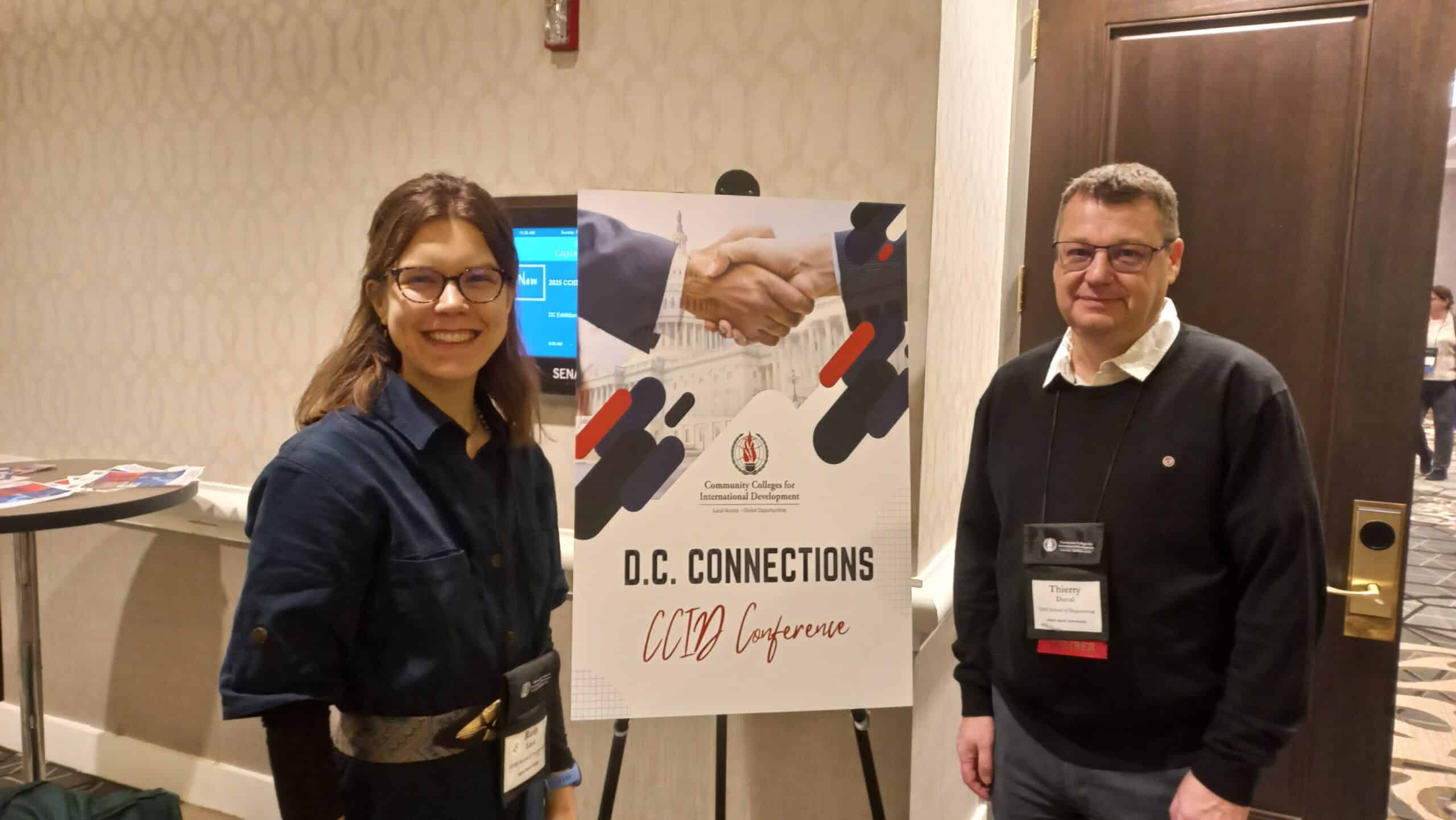
In this page:
- Geographic areas covered by international relations officers
- Ruth Lied, international relations officer (Northwest Region), on her mission to the United States
- Alexandre Phan, international relations officer (Eastern Region), on his mission to Thailand
- Laurianne Giteau, international relations officer (Île-de-France and Central Region), on her mission to Africa
- Conclusion
International Relations Officers play a crucial role in implementing CESI’s internationalization strategy. Their mission goes far beyond administrative management: they are at the heart of international negotiations and partnerships, ensuring the establishment of new academic exchange or dual-degree agreements, while also overseeing compliance with administrative, legal, and academic requirements. They serve as essential intermediaries between the school’s leadership and the international relations offices of partner institutions.
International Relations Officers are also responsible for promoting CESI in their respective global regions, closely monitoring the evolution of existing partnerships and identifying new opportunities. Their role includes coordinating both inbound and outbound student mobility, recruiting international students, and organizing various international events and recruitment fairs. They work in close collaboration with key stakeholders in higher education and international relations – such as embassies, international high schools, Campus France, companies, and international organizations – to enhance CESI’s global visibility and attractiveness.
Geographic areas covered by international relations officers
International Relations Officers are generally assigned to specific geographic zones based on their personal affinities, language skills, and cultural experiences – such as North America, English-speaking Africa, the Benelux countries, Asia, or Scandinavia. This division helps ensure a deeper understanding of local challenges and facilitates negotiations with international partners. Close coordination between International Relations Officers also facilitates the sharing of responsibilities, particularly in cases where geographic areas overlap.
International travels, conferences, and visits to partner universities are essential tools in the development strategy of international relations. These activities help strengthen partnerships, adapt programs to international needs, and facilitate student mobility across the globe.
Ruth Lied, international relations officer (Northwest Region), on her mission to the United States
International missions are essential for us, International Relations Officers, as they allow us to better understand trends in internationalization projects, the challenges faced by universities, and the funding opportunities available to these institutions. During my last trip to the United States in February, alongside Thierry Duval, International Relations Officer (Western Region of France), I had the opportunity to meet with representatives from American, Irish, and French community colleges and universities. These discussions helped us understand their priorities regarding mobility and partnerships. We also explored ways to adapt our programs to attract university partners and American students. Such missions are not exclusively focused on student recruitment but also on strengthening strategic collaborations that enable the development of new programs and long-term partnerships.
During this trip, we attended the Community Colleges for International Development (CCID) conference in Washington, DC, which deepened our understanding of internationalization challenges and funding solutions for these institutions. The experience opened new prospects for future academic mobility projects through the numerous meetings with international institutions and organizations.
We also visited American University in Washington, DC – an internationally renowned partner, particularly in the field of computer science. Although we already have a partnership for non-degree academic exchanges, our goal is to expand this collaboration by developing a dual-degree program. This visit was particularly enriching, as it allowed us to identify the specific needs of our partner, propose new areas for collaboration, and tailor our offerings accordingly. Finally, we organized an information session to encourage American students to study at CESI, further strengthening our relationship with this institution.
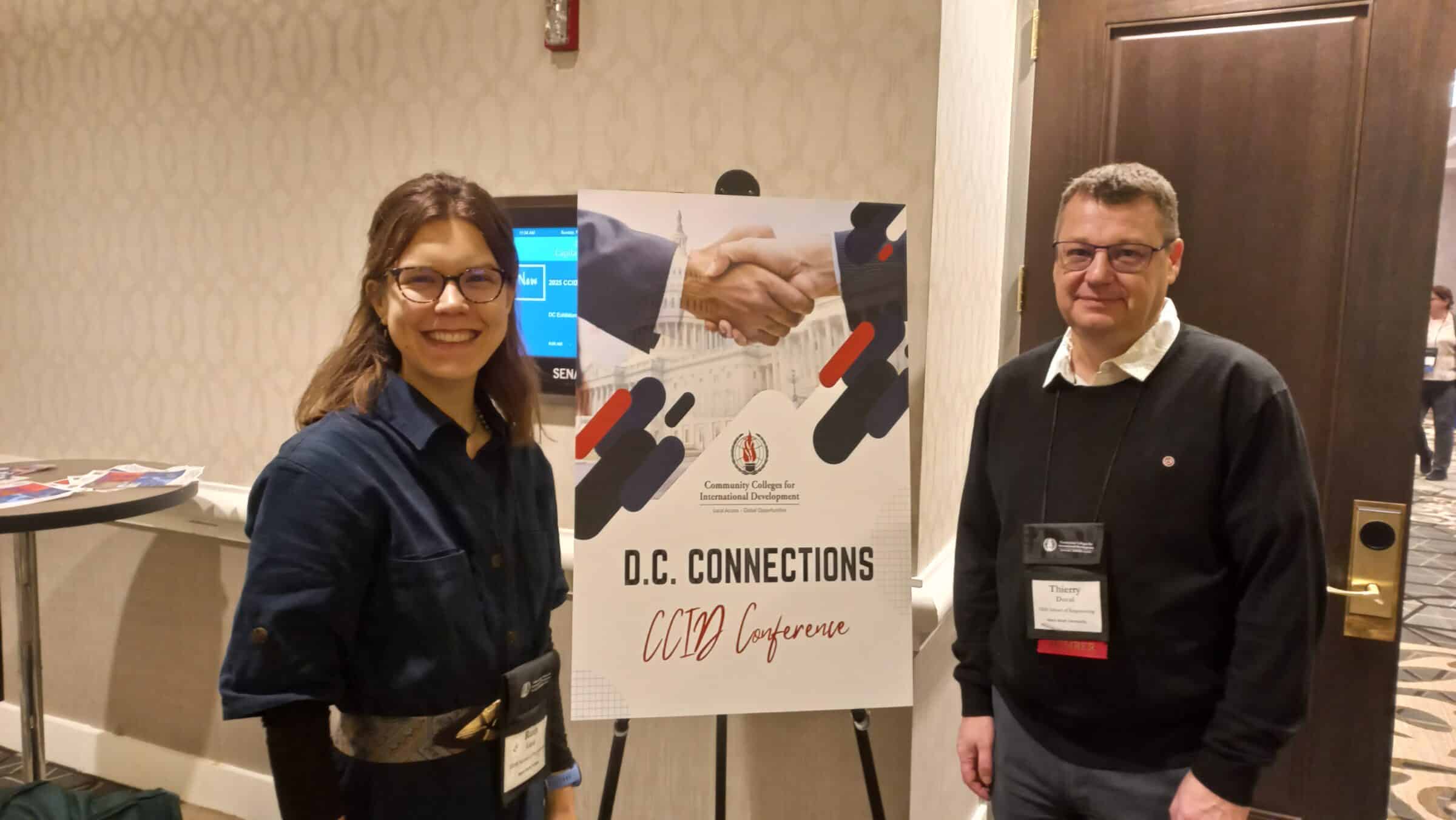
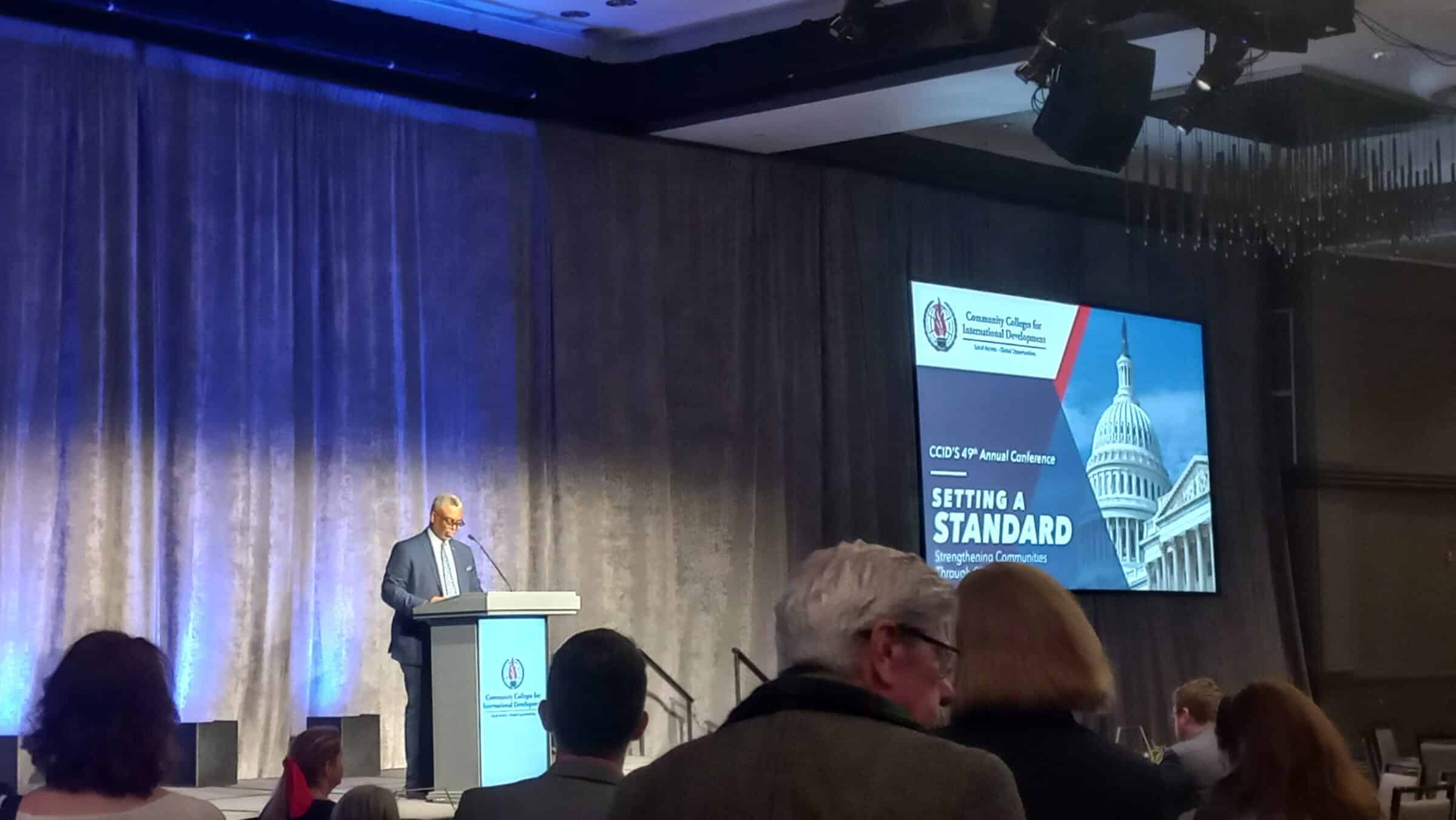
Alexandre Phan, international relations officer (Eastern Region), on his mission to Thailand
Our mission in Thailand began with a visit to our partner KMUTNB and its College of Industrial Engineering, where around thirty CESI apprentices complete internships each year. This visit provided an opportunity to engage with laboratories and faculty members who supervise our students. We also strengthened our relationship with the university by expanding the partnership to include the Faculty of Information Technology and Digital Information. By chance, we met Thai students who had previously completed research stays at CESI LINEACT.
Our time in Bangkok marked a key milestone: the official launch of our cooperation with Kasetsart University. Founded in 1943, it is not only the third-oldest university in the country but also the largest, with over 70,000 students across four campuses. Thanks to our agreement with the International College, numerous academic exchange opportunities will open up in the coming years.
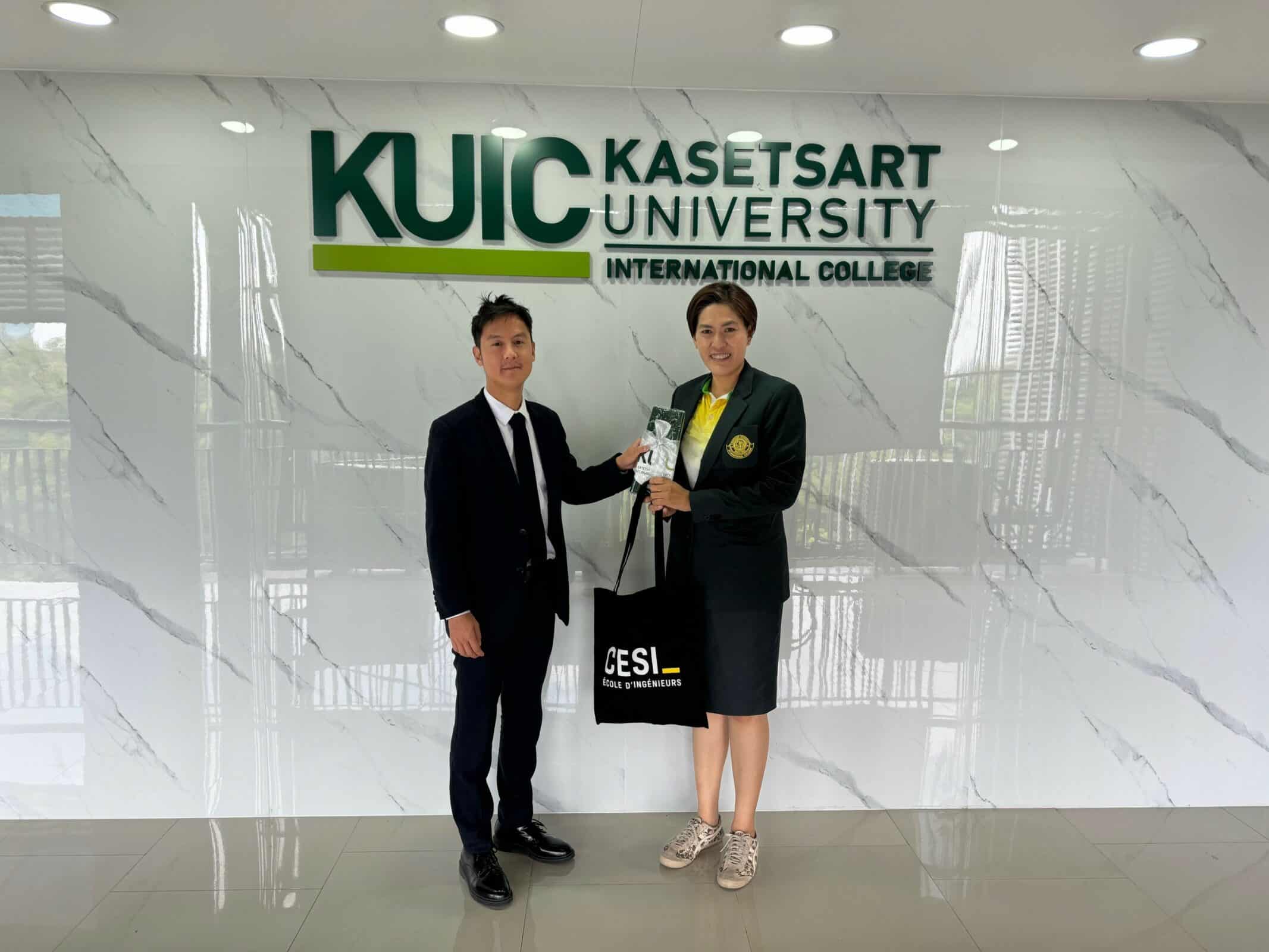
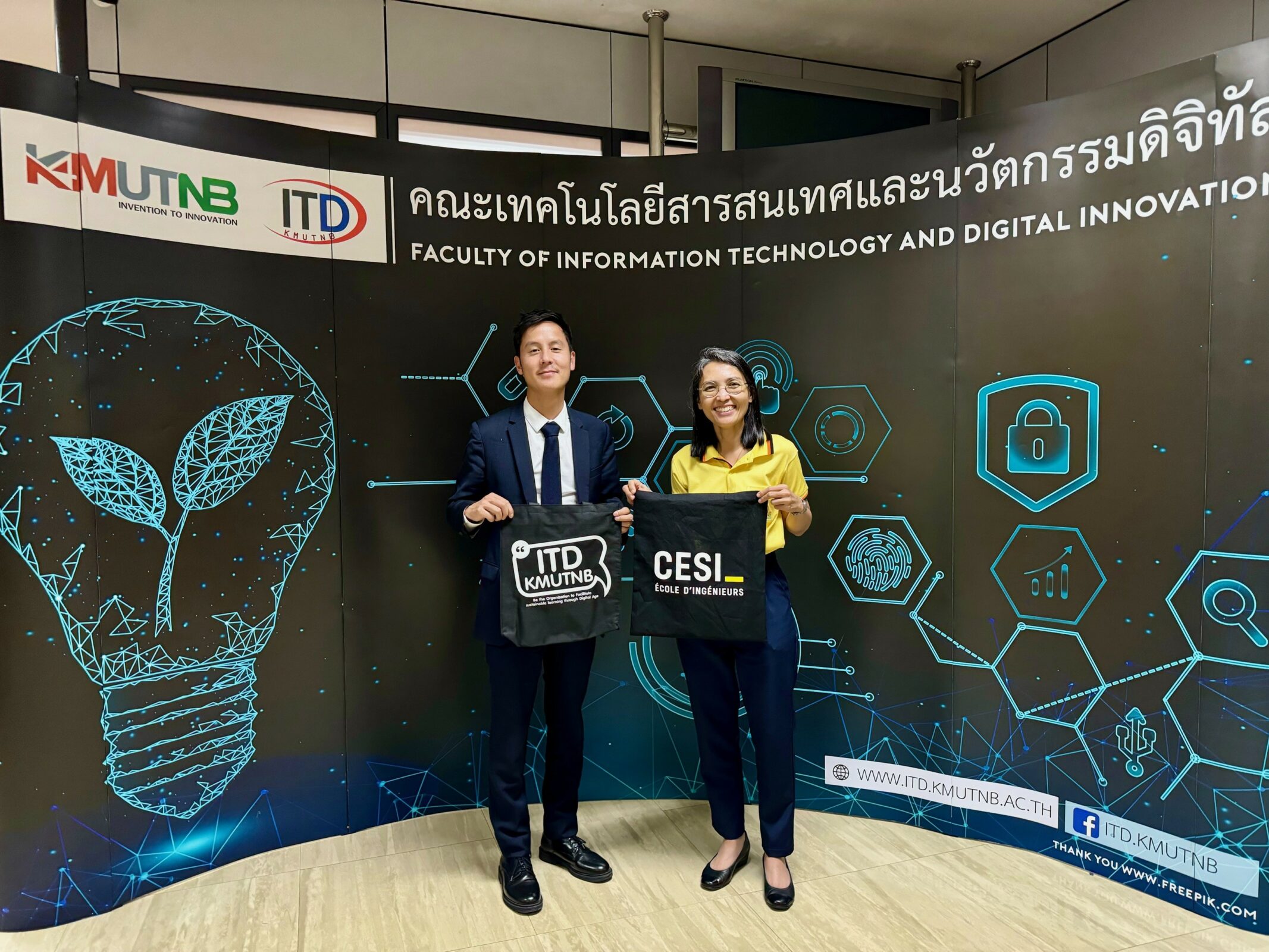
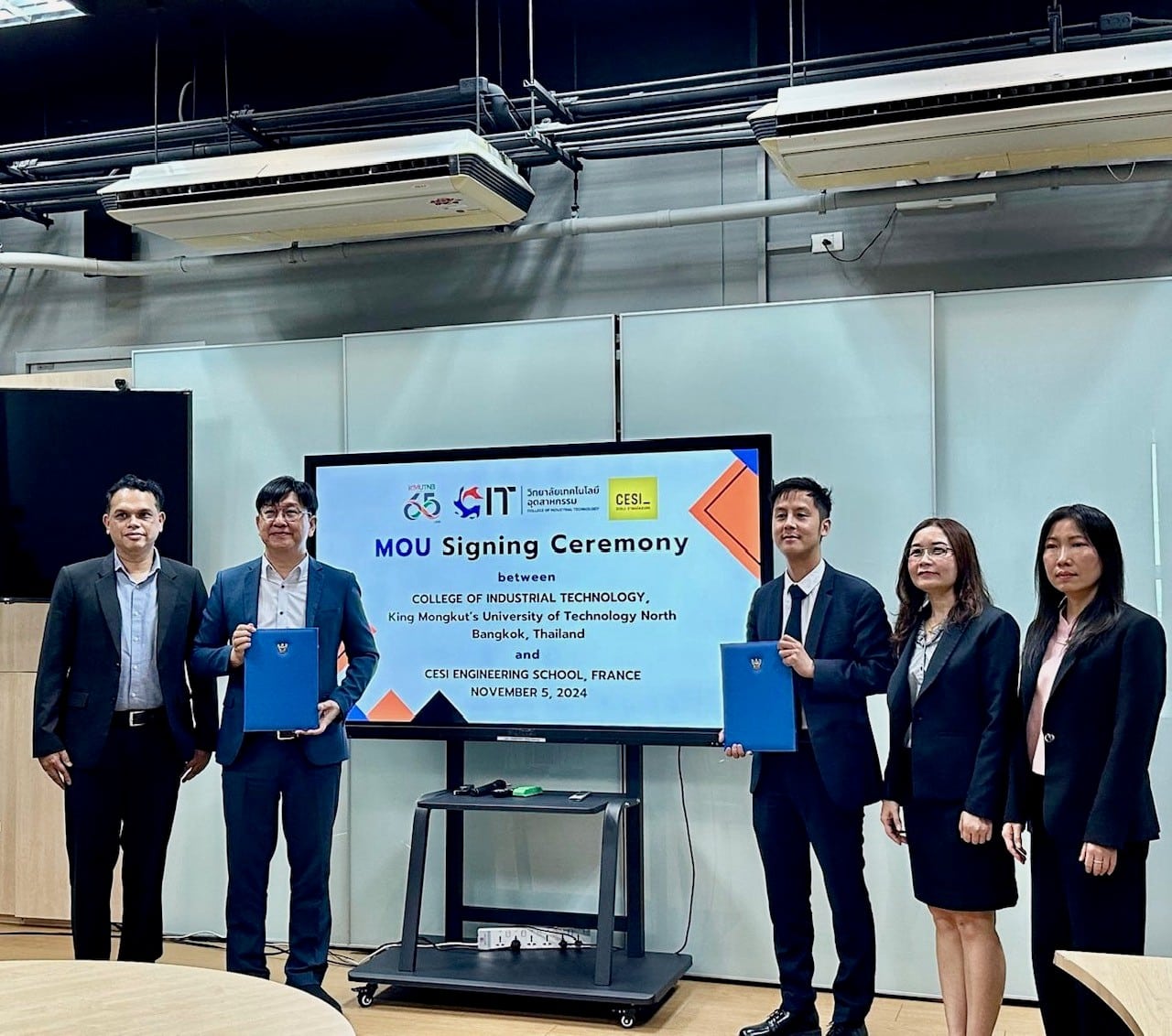
Laurianne Giteau, international relations officer (Île-de-France and Central Region), on her mission to Africa
In early March, I had the opportunity to take part in a one-week mission in West Africa to strengthen our partnerships in Cameroon, Côte d’Ivoire and Senegal.
Our trip began with a visit to two partner preparatory classes in Cameroon. As it was a key moment for students to make their academic choices, we gave presentations of our programs to help them with their decisions. We also met with Campus France in Cameroon to establish new procedures to facilitate visa issuance. For example, we agreed to send them the list of admitted students to simplify the verification of application files.
We then traveled to Côte d’Ivoire, where we visited a preparatory class funded by The Ministry of Education and Vocational Training. Once again, we exchanged views with teaching staff and met with students. These discussions reinforced our relationships and provided an opportunity to engage in meaningful dialogue about pedagogy. We also met with international relations officers at the French Embassy to discuss our partnership and enhance collaboration with Ivory Coast. Additionally, we met with a school planning to open a new preparatory class in the coming years. It was a constructive first contact, and we exchanged information to explore this potential partnership.
One of the highlights of our stay in Côte d’Ivoire was our meeting with Mr. Koffi N’GUESSAN, Minister of Technical Education, Vocational Training, and Apprenticeship. Strongly committed to youth education, he expressed his full support for international mobility and emphasized the importance of Ivorian students studying in France, with the aim of returning to contribute to their country’s development. This brief but meaningful meeting further reinforced our ties with local authorities.
Finally, we concluded our mission in Senegal, where we met with students and teaching staff at Sainte Jeanne d’Arc Institute. We presented our academic programs and support services to prospective students interested in studying at CESI. This visit also provided an opportunity to address concerns expressed by families who were considering sending their children abroad for higher education.
This mission offered a valuable opportunity to strengthen existing partnerships, lay the groundwork for new projects, and engage with key stakeholders, while deepening our understanding of local challenges and the obstacles faced by our partners. As someone still new to the role of International Relations Officer, I found this trip to be an immersive experience within the network and a pivotal step in building meaningful connections for the future.
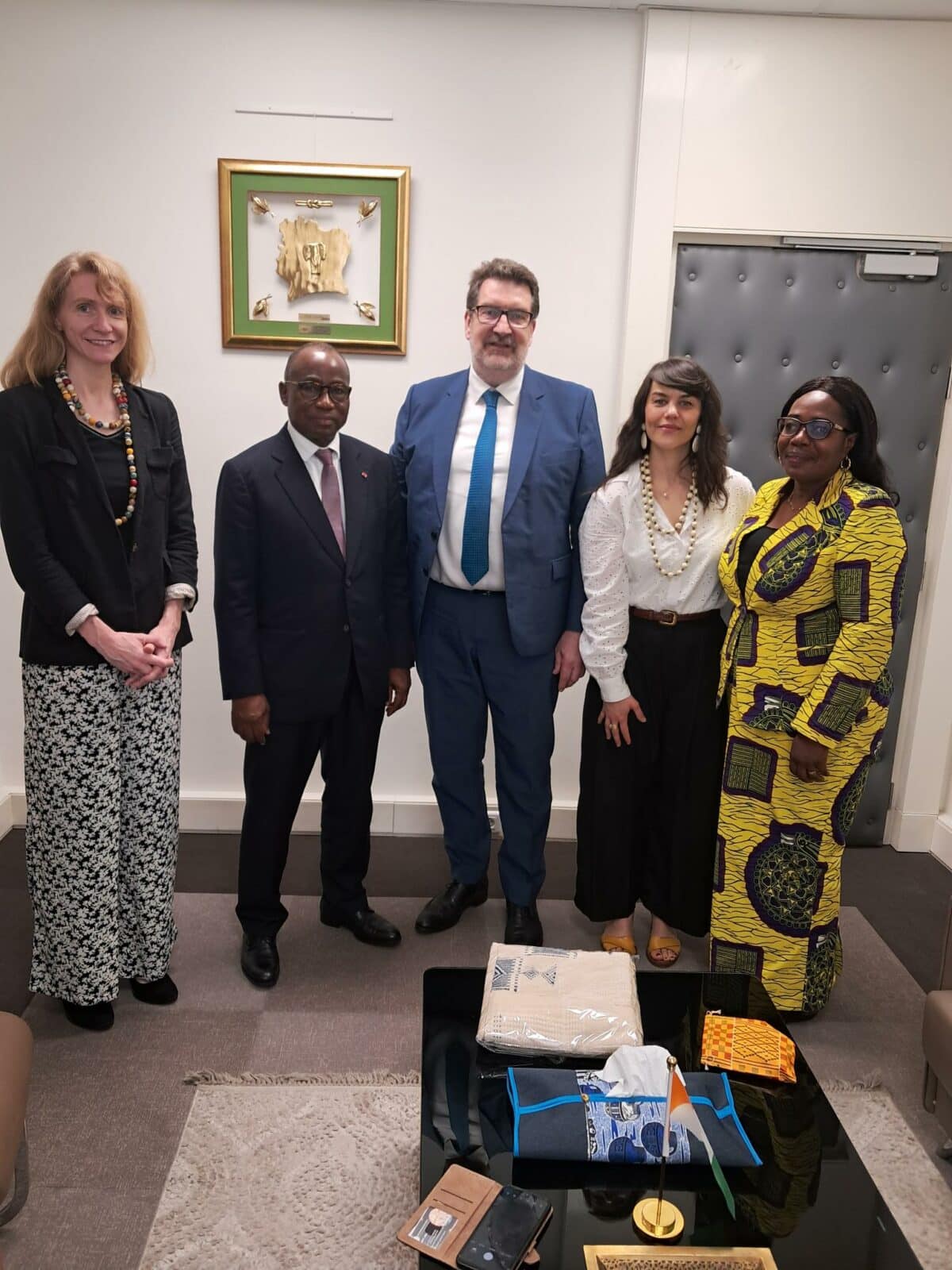
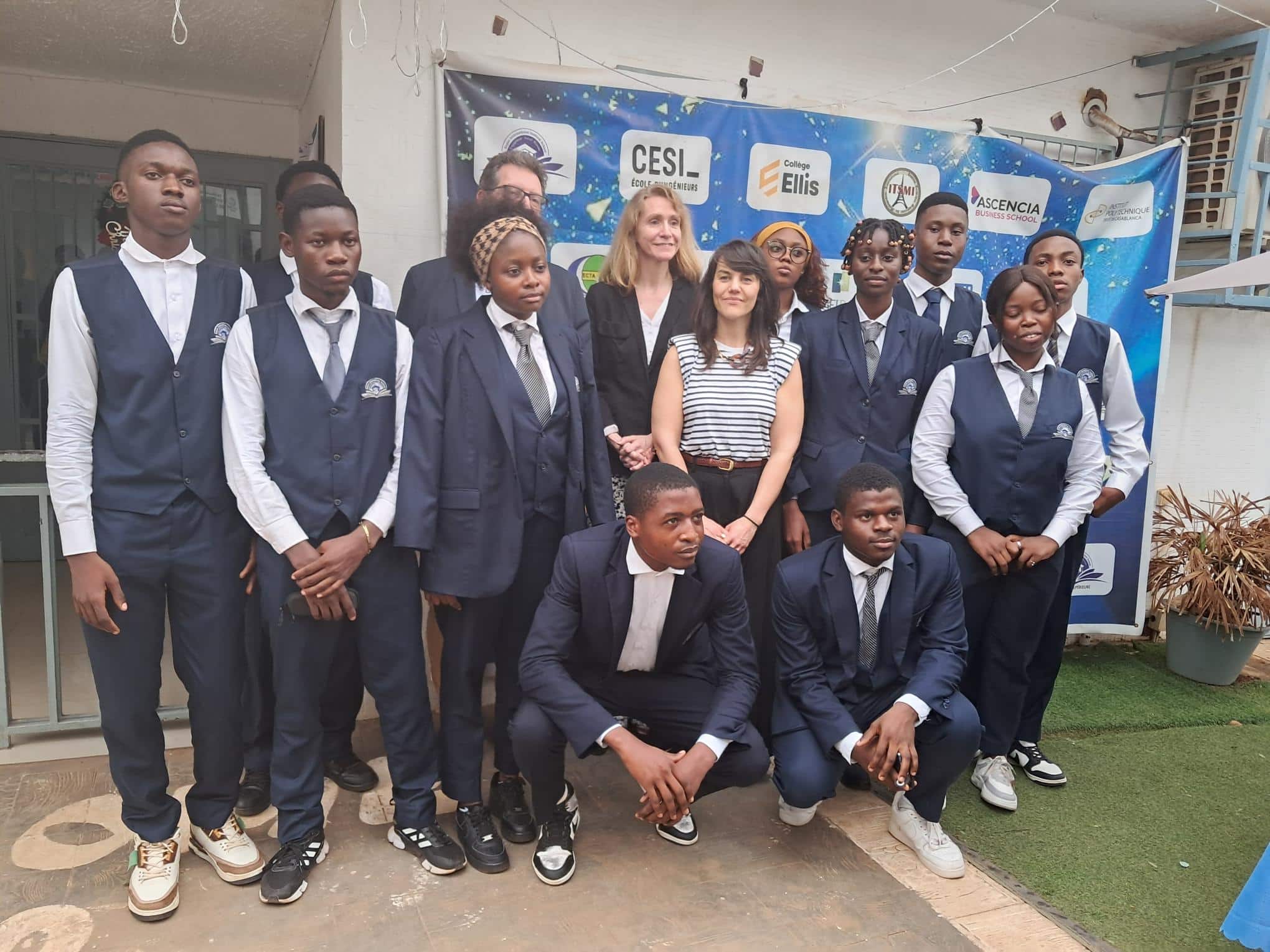
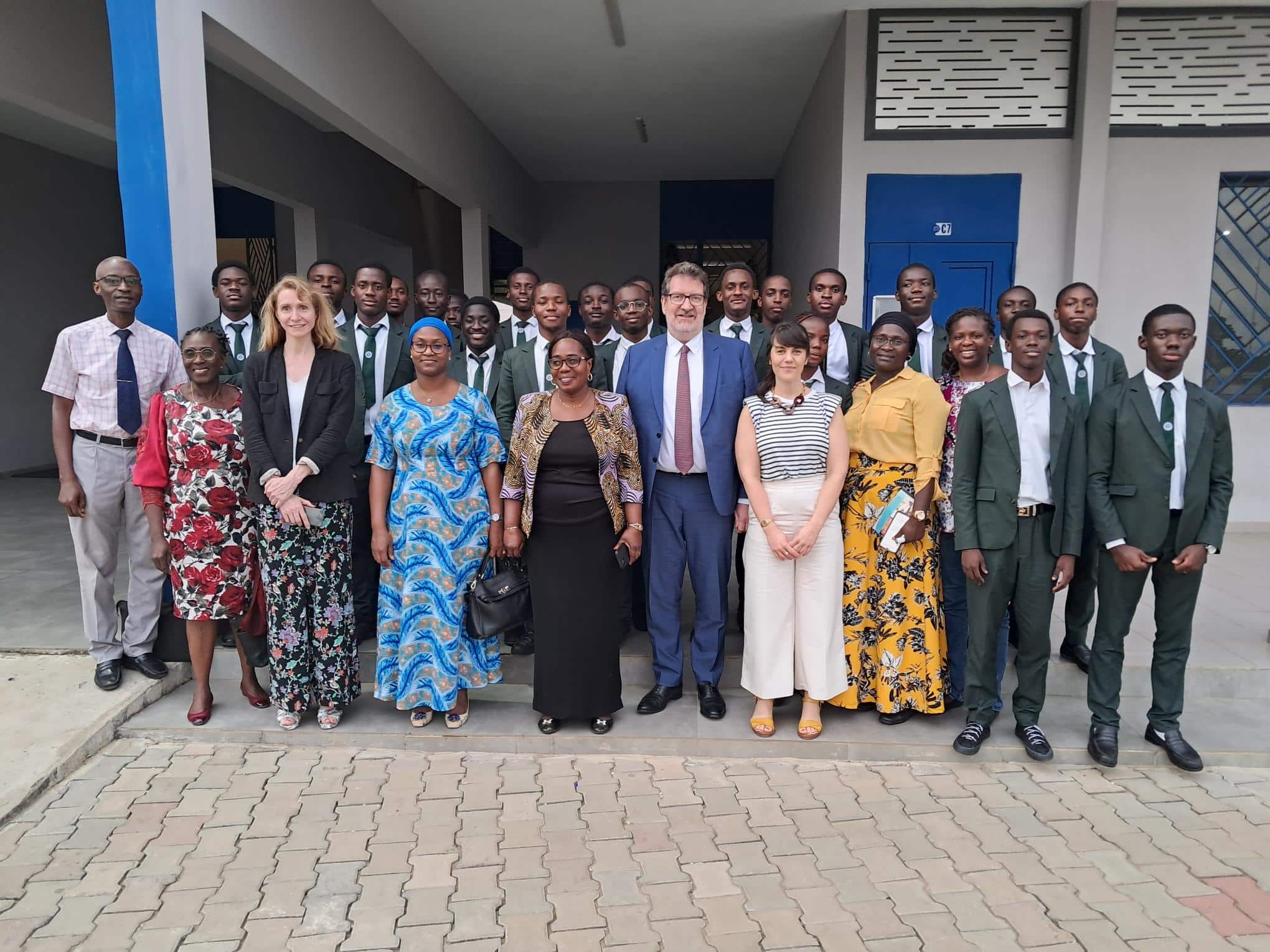
Conclusion
International missions carried out by International Relations Officers are fundamental to the internationalization strategy of higher education institutions. They help strengthen existing partnerships, explore new collaboration opportunities, and adapt academic programs to international standards. Each international mission- whether conducted in the United States, Thailand, or other regions – plays a strategic role in promoting student mobility, expanding academic cooperation networks, and consolidating long-term institutional partnerships.